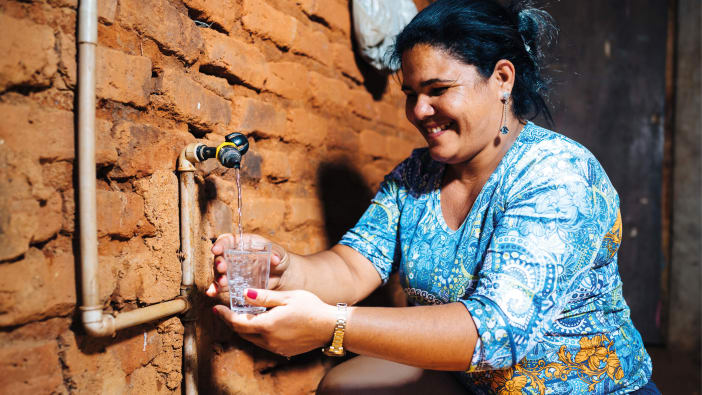Background
In the north-east of Brazil, data suggests that six out of ten women have no form of income and rely on government benefits. Young people have also moved away from the semi-arid rural areas because of the lack of work opportunities.
In 2012, the Semia project was established, in partnership with Tearfund, Diaconia and the European Union, to try to create sustainable livelihoods through providing training courses, particularly focusing on women and young people.
The Project
Semia aims to use training and meetings to help promote sustainable livelihoods and market access, develop dialogue between civilians and government organisations, and help women, youth and family farmers gain access to institutional markets. Since 2012, Semia have run several training courses and workshops, such as:
- baking and bread-making courses
- training on handling, use, marketing and certification of food
- training on food processing
- uses for and processing of fruits (eg drying, making jams etc)
- craft workshops
- food security workshops with government representatives
- capacity building in agriculture
- project management and production planning training
- training in forming cooperatives and associations
- meetings to promote the exchange skills and knowledge between beneficiaries
- meetings to discuss women’s rights and laws
- meetings with government officials, EU partner organisations, agricultural institutes and unions etc







